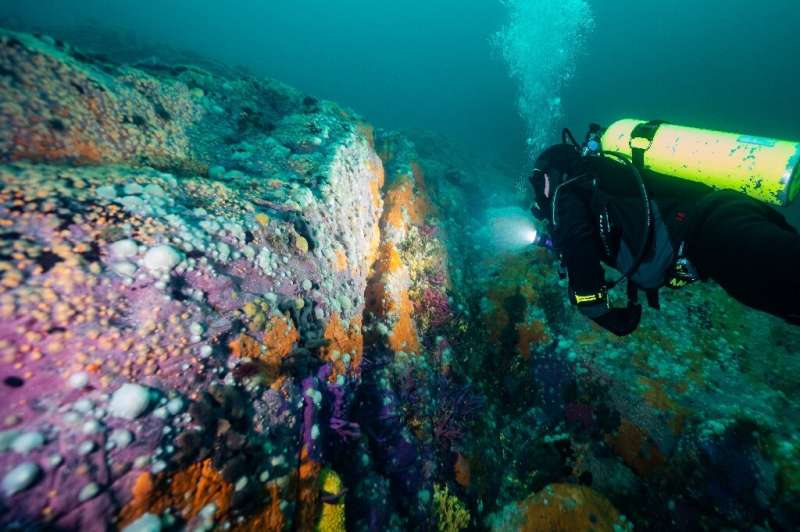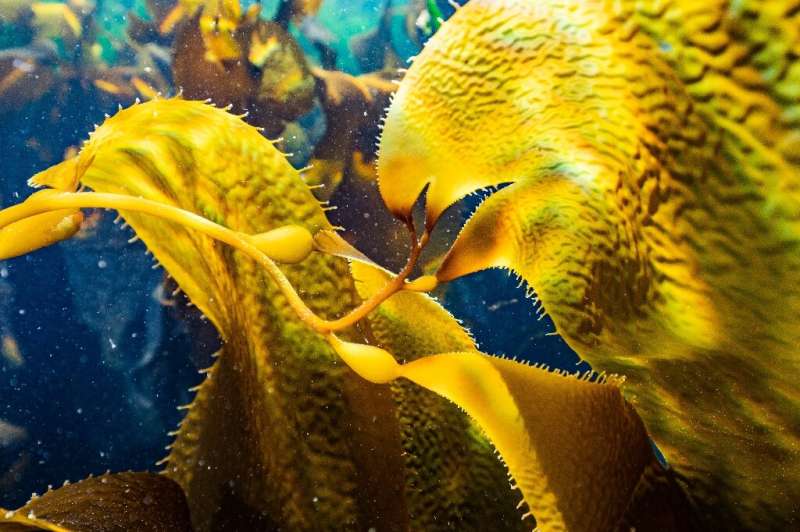This article has been reviewed according to Science X's editorial process and policies. Editors have highlighted the following attributes while ensuring the content's credibility:
fact-checked
reputable news agency
proofread
Patagonia's underwater defense against climate change

Chile's Patagonia is known for its mountains and hiking paradise but it is also home to the largest continuous kelp forest in the world.
Kelp forests are crucial for battling climate change by capturing carbon, regulating the sea's PH level, maintaining the structure of coasts and are home to multiple species.
But more than half of the world's kelp forests have been decimated by human activity and climate change.
"We want to show that this is what can be lost if we don't protect them," said Max Bello, a Chilean expert on ocean policy who was part of a nine-day scientific expedition run by American NGO Mission Blue to study the kelp forest in the southern area of Chiloe, around 1,400 kilometers south of Santiago.
"When you say Patagonia, we imagine mountains, huge rocks, wind, but few people know what there is underwater," added Bello.
"We know that Patagonia has the largest and best preserved continuous kelp forest in the world."
Bello said this potentially gave the kelp forest "greater carbon sequestration power even than the Amazon rainforest."
But it needs protecting—a kelp forest off the coast of California has lost 97 percent of its size.

One threat the southern Patagonian kelp forest faces is exploitation of alginate, a principal component in cosmetics which is extracted from algae, usually illegally along the northern coasts of Chile.
"If we don't protect ourselves from this threat, if we don't stop what is happening in the north, we will lose one of the few answers we have to be able to stop climate change," said Bello.
A dozen scientists, videographers and photographers took part in the mission to Patagonia.
They dived down up to 30 meters to collect information on this little explored ecosystem that expands across hundreds of islets, fjords and canals.
"They are truly playgrounds of many species" such as mackerel, sardines, otters, mollusks, sea urchins and octopi, said Bello.
© 2023 AFP




















